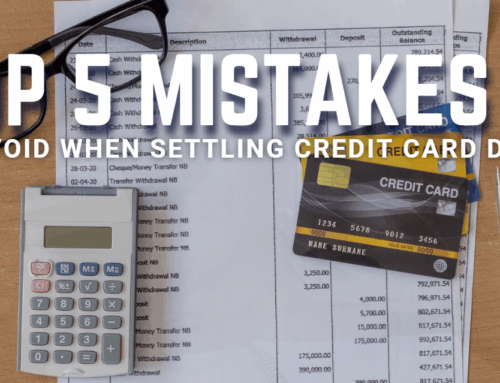When credit card debt starts piling up, it’s natural to start weighing your options. For many, the question becomes: Should I settle debt or use savings? Both approaches have pros and cons, and choosing the wrong one could have long-term effects on your financial well-being.
At Mediator Law Group, we’ve seen how personal finances vary widely—and so should your debt payoff strategy. In this blog, we’ll explore the difference between using liquid savings to pay off credit card debt versus enrolling in a structured, legal debt settlement program. Our goal is to help you make an informed, balanced decision.
Using Savings to Pay Off Credit Card Debt
On the surface, using your savings to wipe out credit card debt seems like a straightforward solution. If you’ve got the cash, why not pay off the balance and move on?
Pros:
- Immediate debt relief: You’ll stop accruing interest, which can be as high as 25–30% annually.
- No damage to your credit: Paying off your cards in full may even improve your score.
- Peace of mind: You eliminate the stress of owing money to creditors.
Cons:
- Drains emergency funds: If you use all your savings to pay off debt, you may have nothing left for medical bills, job loss, or car repairs.
- Delays long-term goals: Depleting your savings could mean postponing investments, retirement contributions, or a down payment on a home.
- Doesn’t address financial habits: Paying with savings doesn’t always solve the root cause of the debt. If overspending or income imbalance is an issue, you might fall back into debt again.
Entering a Legal Debt Settlement Program
Legal debt settlement involves negotiating with your creditors to pay less than what you owe. It’s typically used by individuals facing financial hardship who can’t afford to pay the full balance.
Pros:
- Significant savings: Many settlements close for 40–60% of the total balance.
- Structured plan: You make fixed monthly payments toward a negotiated lump sum or reduced total.
- Preserves savings: You can protect your emergency fund while still making progress on your debt.
- Legal oversight: When managed by a law firm like Mediator Law Group, your negotiations are legally protected and professionally managed.
Cons:
- Temporary credit score impact: Settled accounts may show as “settled for less,” which can impact your score short-term.
- Tax implications: Forgiven debt over $600 may be considered taxable income by the IRS.
- Takes time: Settlements can take months to negotiate and resolve.
Choosing the Right Strategy for You
So, should you settle debt or use savings? The answer depends on your financial picture.
Ask yourself:
- Will using savings leave you financially vulnerable in an emergency?
- Are you behind on payments or unable to keep up?
- Would negotiating a settlement reduce your stress and monthly obligations?
If you can pay off debt while maintaining a healthy savings cushion, it might make sense to do so. But if paying in full would leave you with little to fall back on—or if your debt is unmanageable—settlement could be the safer, more sustainable option.
Why Legal Support Matters
A DIY approach to settlement can backfire. Creditors may refuse to negotiate, or you might end up agreeing to terms that don’t truly serve your financial goals. Working with a law firm like Mediator Law Group ensures your rights are protected, your negotiations are handled professionally, and your plan is built with your long-term health in mind.
We offer legally backed settlement strategies designed to reduce what you owe without compromising your future.
Which Will You Choose?
Choosing between using savings or legal debt settlement isn’t about right or wrong—it’s about balance. Consider your emergency fund, your ability to repay, and your long-term goals before making a decision.
If you need help creating a plan or want to explore legal settlement as an option, Mediator Law Group is here to help. Together, we’ll build a strategy that supports your financial future—not just the next few months.









